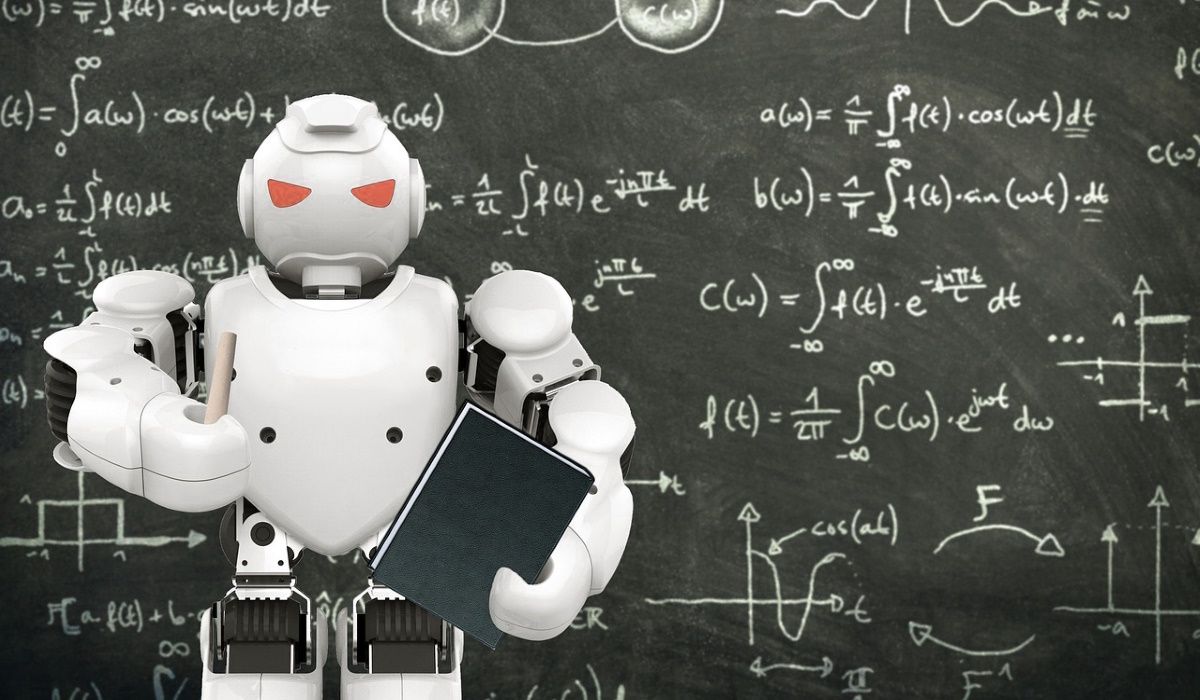As artificial intelligence is becoming more and more common in our society, it’s also gaining ground in the cybersecurity sector—for good and for bad. As we leverage the latest AI-powered tools to strengthen our cybersecurity, cybercriminals are also utilizing the same technologies to come up with more sophisticated attacks and break through our defenses.
So, we’re left wondering if AI is making the world more secure and who benefits most from it, the good or the bad guys.
What Is Artificial Intelligence?
Artificial intelligence is an area of computer science focused on creating software that can mimic or improve the abilities of the human mind to solve complex challenges. Some of these include the ability to think rationally, learn new information, identify and solve problems, and learn from past experiences.
The three critical technologies for AI are machine learning (the ability of a machine to learn and improve its performance), deep learning (a subset of machine learning concerned with simulating a human mind), and natural language processing (the capacity of a machine to understand human language and speech).
AI-powered software and systems are able to analyze data and take action on their own, without any need for human agency. Some everyday examples of AI-based applications include advanced search engines, recommendation algorithms, digital assistants, chatbots, autocorrect, and even AI art generators—if you’re into digital art, you might want to consider creating computer-generated art with AI.
What Roles Does AI Play in Cybersecurity?
AI recently entered the spotlight of the cybersecurity industry. It began as an intelligent agent that searched for malware and other anomalies in security systems but later expanded its arsenal to tackle more complex security challenges.
AI can identify new strains of malware, spot weak links concealed in countless lines of code, and predict cybercrime before it is committed (perhaps even cyberattacks in space).
These are the most significant roles AI plays in strengthening cybersecurity.
Automated Asset Discovery
Since IT assets are a top target for cybercriminals, it’s critical to have up-to-date information about all hardware, software, and cloud-based assets such as data.
As things constantly change on an organization's network, such as new devices being added and removed all the time, asset discovery can become a serious challenge to IT managers. This is where AI comes into play. By automating asset discovery, AI makes the complete process more efficient, and less prone to human error. Also, AI strengthens the organization's cybersecurity by searching for vulnerabilities in both infrastructure and systems, such as out-of-date software, data leaks, and vulnerable apps.
Network Monitoring and Management
The purpose of network monitoring is to provide relevant real-time information (such as traffic flow, bandwidth utilization, and uptime) that inform network administrators whether a network is running optimally. Aided by AI, a network monitoring system can benefit from automation, which will simplify and speed up the monitoring and maintenance process.
AI can monitor the network without stopping and promptly alert administrators about any serious issues that need to be addressed while avoiding false alarms (though some AIs are prone to false positives). Plus, AI can prioritize issues, so administrators know which of them call for immediate attention.
Predicting and Preventing Cyberattacks
By utilizing predictive AI, administrators can recieve alerts about zero-day vulnerabilities in the organization's software before a successful cyberattack happens and irreparable damage is done. Without it, cybercriminals could target these weaknesses by launching so-called zero-day attacks using zero-day exploits that are even unknown to the software providers themselves.
Also, AI can be utilized to spot cyber threats and suspicious cyber activities. Standard security systems can’t keep up with new, more sophisticated malware coming out at an unprecedented pace. However, with a helping hand from AI and its sophisticated algorithms, it can recognize patterns, discover malware, and detect even the smallest signs of malware or ransomware attacks before they penetrates the IT system.
If you’re thinking that your business is too small for serious cyber threats, think again. There are cyberattacks that businesses commonly face regardless of size.
Incident Response
Automated by AI, security response to cyber threats requires less time and lessens the risk of human error. AI helps security staff manage security alerts at a large scale, identify specific threats, prioritize risks, and find the right resources to respond to high-risk threats.
This can be particularly useful in a situation when the security staff isn’t sure how to react to a lesser-known incident. In such a case, an AI-powered security solution can take control, automatically shut off compromised systems, and act to reduce the damage done by a cyberattack.
Eliminating Human Error
Alright, we can't expect AI to entirely eradicate the human error factor, at least for the time being. However, AI can keep human error to the minimum by taking over manual and semi-manual tasks that sometimes suffer from the trial-and-error approach.
After all, the majority of cybersecurity breaches can be tracked down to human error, confirming the unfortunate fact we’re the weakest link in the cybersecurity chain. If we take a look at the biggest data breaches of 2022, we’ll notice one thing in common: human error that could have been avoided.
Pros of Utilizing AI in Cybersecurity
AI-powered solutions are capable of spotting, analyzing, and combating cyber threats faster than traditional security software, which makes them a powerful tool in the fight against cybercrime. Some of the major advantages of utilizing AI in cybersecurity include:
- AI can work around-the-clock: AI doesn't need to find a balance between a professional and personal life, take breaks, and resist procrastination. AI can work 24/7/365 without the need for rest.
- AI becomes more intelligent as time goes by: AI takes advantage of machine learning and deep learning, so the technology behind it becomes more advanced as well.
- AI can analyze data faster than anything: Even if we’re talking about a booming business with large chunks of data, AI can go through it in very little time and find any threat hidden in the traffic.
- AI is able to identify unknown threats: While humans might not be able to identify threats unknown to them, AI is much more proactive—sometimes even prone to false positives—when it comes to identifying new cyber threats.
Cons of Utilizing AI in Cybersecurity
Like with most things in life, there’s a dark side to AI, and it has a lot to do with the fact that it can be used by cybercriminals too. So, here are a couple of cons of using Ai in cybersecurity.
- AI can be taken advantage of by bad guys too: Unfortunately, AI doesn’t have a moral compass, which means cybercriminals can use its technology to create more sophisticated, automated cyberattacks. For instance, AI can be used to search for weaknesses in security systems empowering cybercriminals to exploit them.
- AI can’t think outside the box: While AI is capable of accumulating and analyzing information, it isn’t creative in its approach to learning. Without the human touch, it can be ineffective in situations that call for creativity such as adversarial attacks.
- AI isn’t immune to making mistakes: Although humans are more prone to error, AI can be tricked too. For instance, adversarial attacks are created to outwit a machine-learning algorithm, causing AI to misinterpret maliciously designed data and start making mistakes that compromise overall security.
Who Benefits More from AI’s Role in Cybersecurity: The Good or The Bad Guys?
While both sides benefit from AI’s role in cybersecurity, it can’t be denied that AI has immense potential for making the online world more secure.
AI can help us discover and prioritize risks, direct incident response, and detect cyber threats before damage is done. Although AI comes with drawbacks, such software plays a critical role in strengthening cybersecurity. But it is our role to make sure that the rise of AI doesn’t get out of control.







